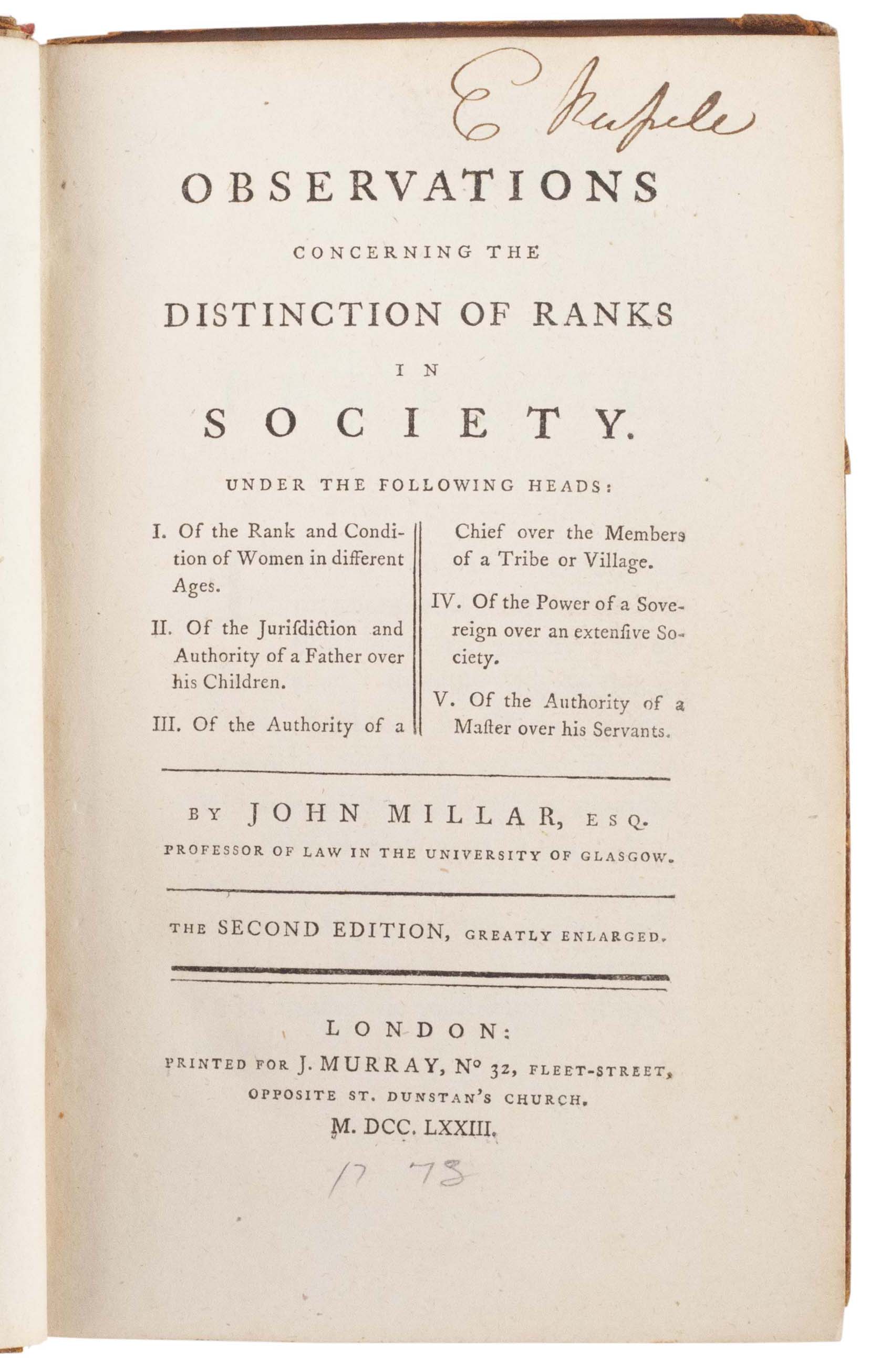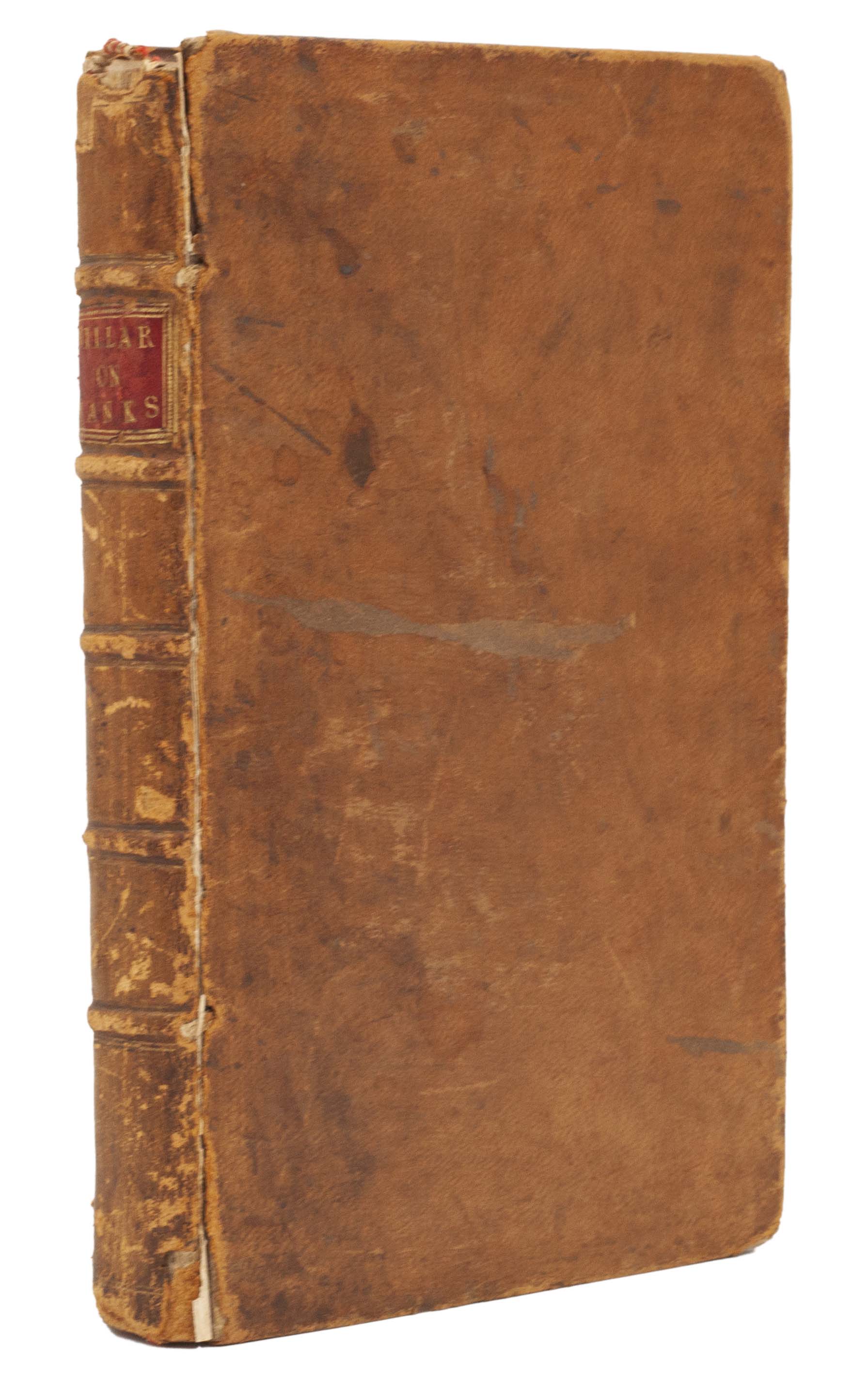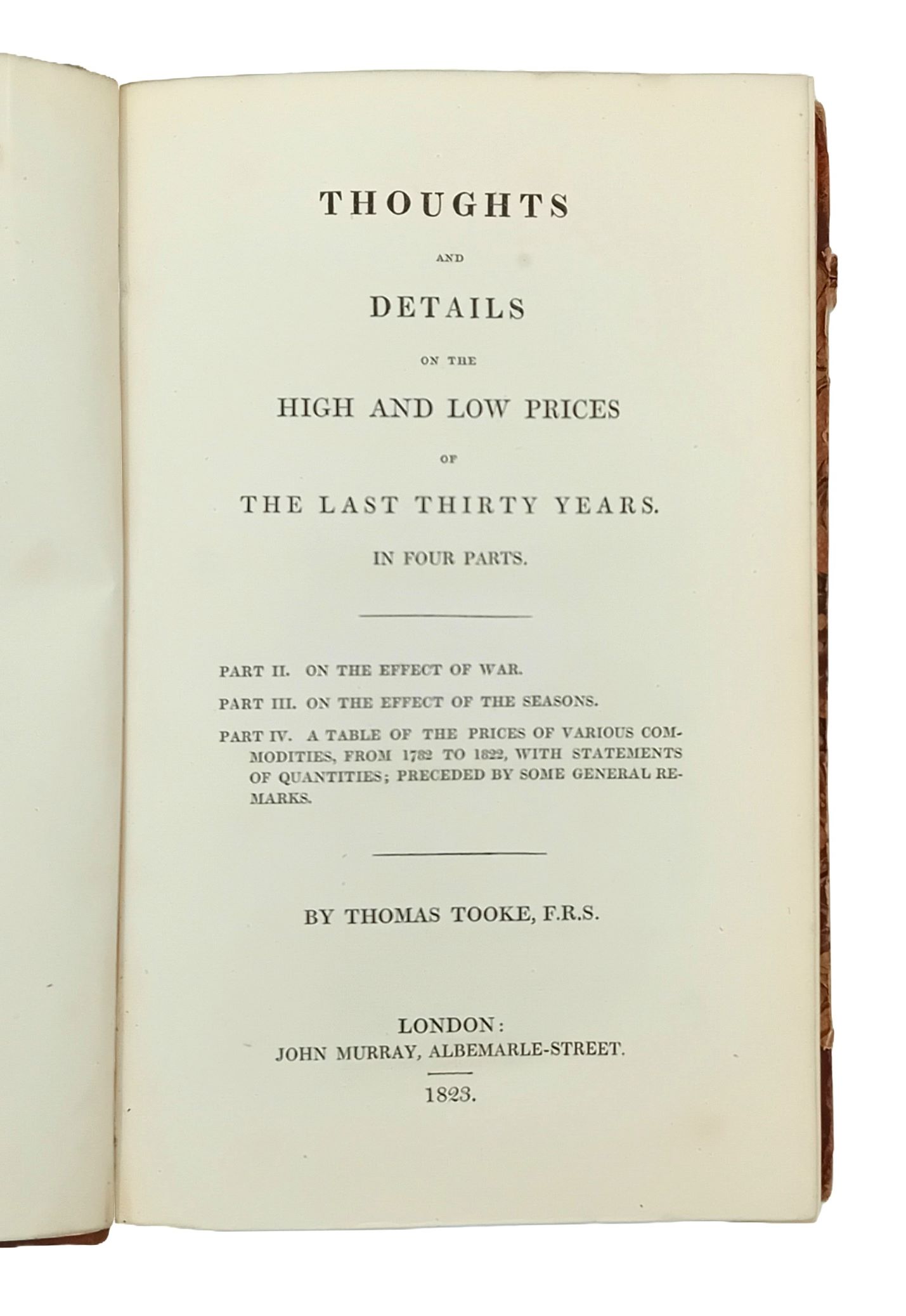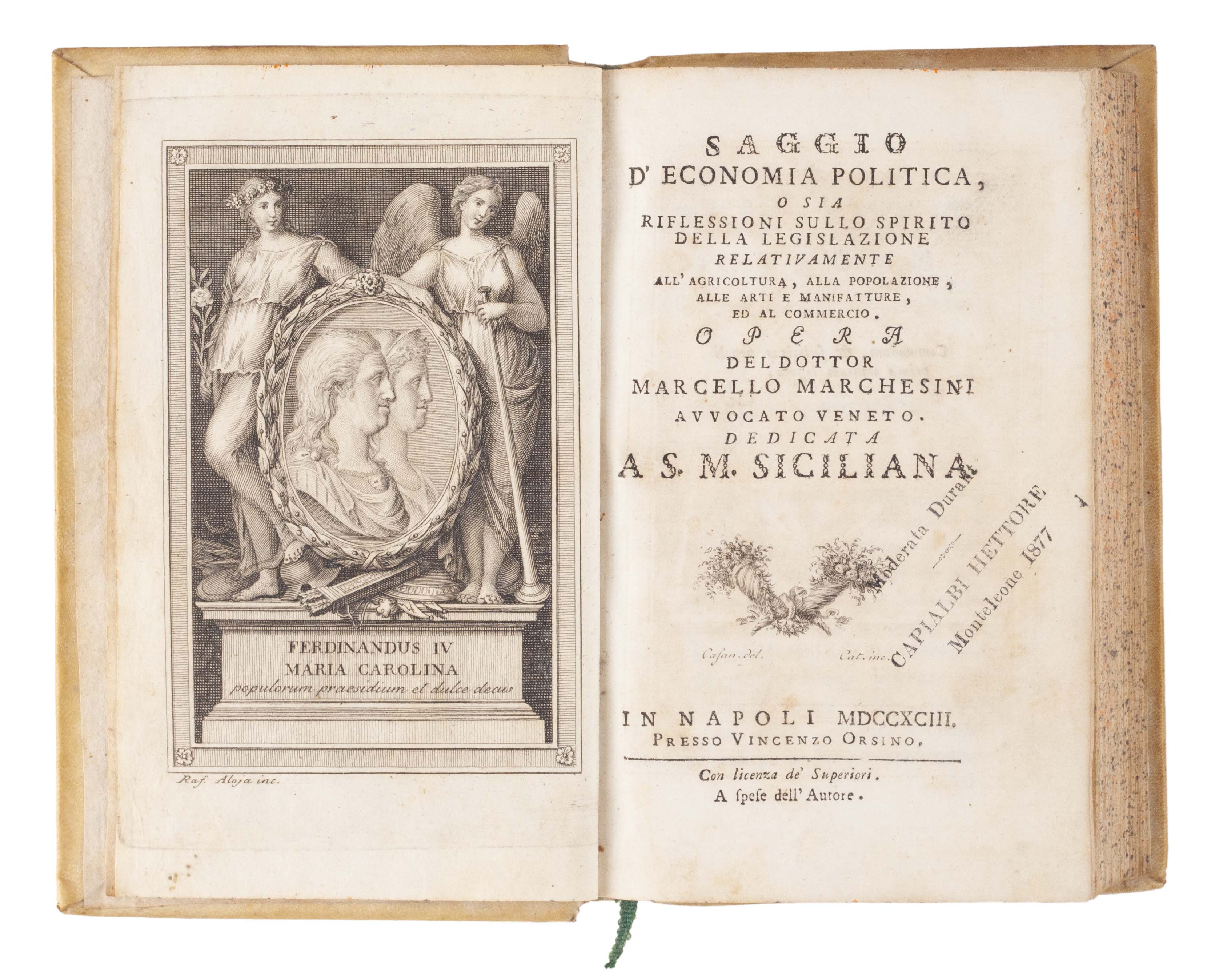

SOCIAL DEVELOPMENT STAGES DEPEND ON ECONOMY
MILLAR, John.
Observations concerning the distinction of ranks in society. Under the following heads: 1. Of the ranks and condition of women in different ages. II. Of the jurisdiction and authority of a father over his children. III. Of the authority of a chief over the members of a tribe or village. IV. Of the authority of a master over his servants.
London, Murray, 1773.
8vo, pp. xxii, 312; half-title; errata slip tipped in to rear free endpaper; a very good, clean copy in contemporary calf, rubbed, joints cracked but holding, spine chipped, red morocco label; provenance: ownership inscriptions in ink to title page and front free endpaper; armorial bookplate of Davies Gilbert and his ink shelfmark to front pastedown, from the library at Trelissick, Cornwall.

Added to your basket:
Observations concerning the distinction of ranks in society. Under the following heads: 1. Of the ranks and condition of women in different ages. II. Of the jurisdiction and authority of a father over his children. III. Of the authority of a chief over the members of a tribe or village. IV. Of the authority of a master over his servants.
Second London edition, ‘greatly enlarged’, first published 1771. The first section of Millar’s book is a study of matrilineal ‘savage’ societies, in which early social development counts most when it comes to kinship with the mother, is remarkably prescient (see Morgan, Systems). Millar uses the ‘four stages’ theory that was the cornerstone of the Scottish Enlightenment, derived from the writing of Hume and Adam Smith, with whom Millar was a close friend. This posits a social development dependent on the cultural effects of economic relations, i.e. the development of hunting, property, agriculture and commerce, rather than the accidents of climate. Millar’s study of the unequal treatment of women clearly uses this four stages narrative in its comparative study of a number of cultures, including that of the Ancient Greeks. The last section addresses slavery, to which Millar was opposed.
Goldsmiths’ 10953.

